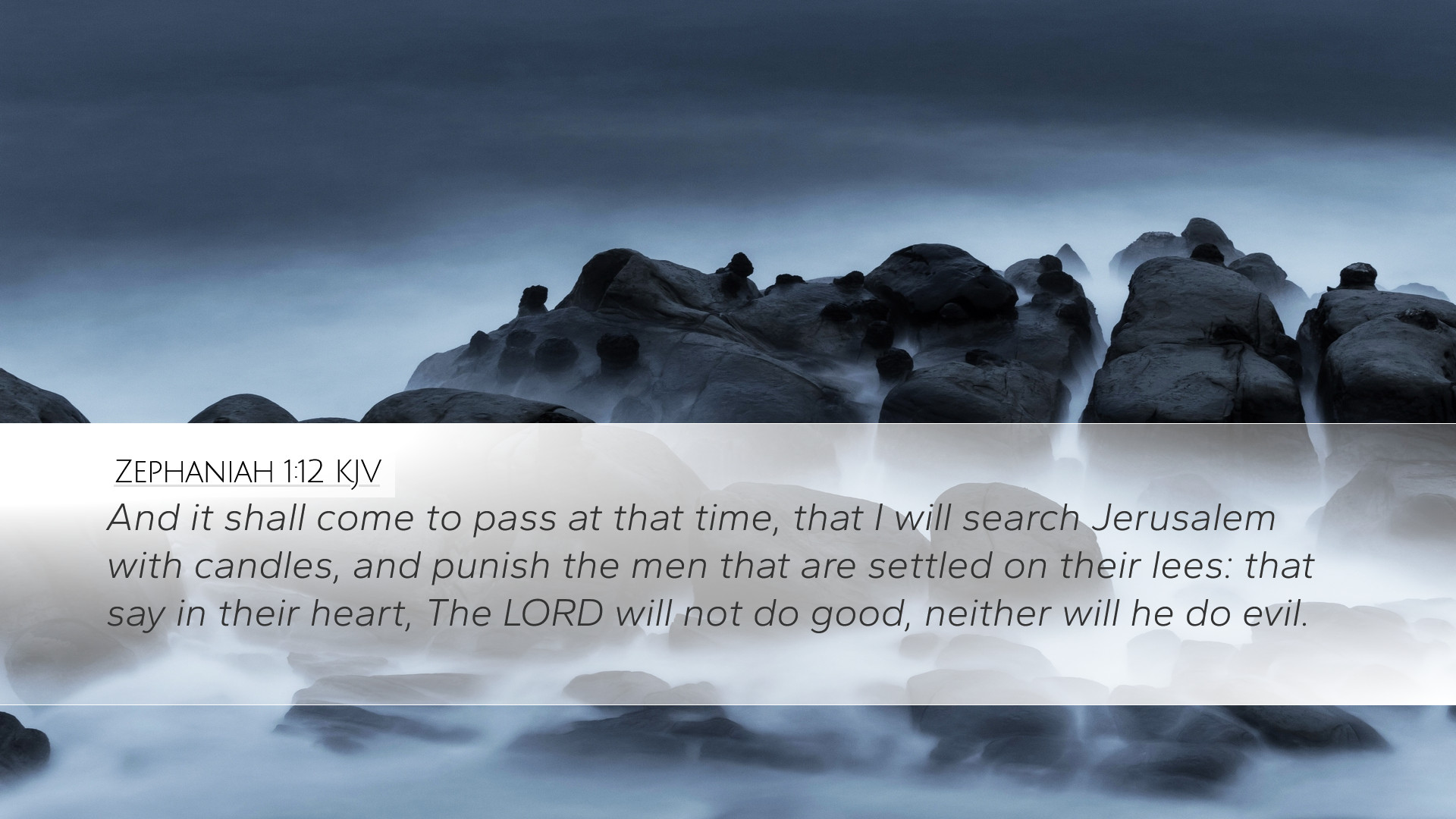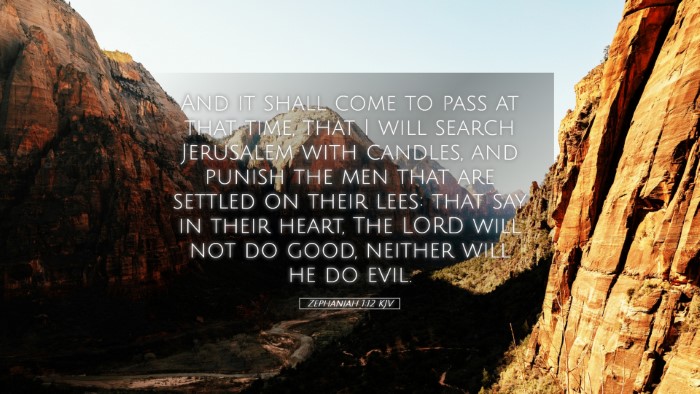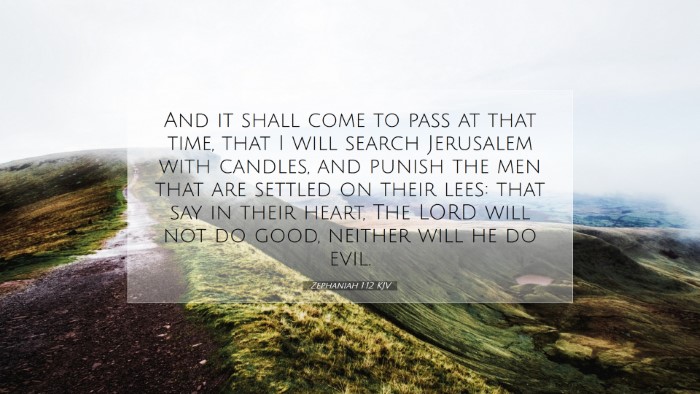Old Testament
Genesis Exodus Leviticus Numbers Deuteronomy Joshua Judges Ruth 1 Samuel 2 Samuel 1 Kings 2 Kings 1 Chronicles 2 Chronicles Ezra Nehemiah Esther Job Psalms Proverbs Ecclesiastes Song of Solomon Isaiah Jeremiah Lamentations Ezekiel Daniel Hosea Joel Amos Obadiah Jonah Micah Nahum Habakkuk Zephaniah Haggai Zechariah MalachiZephaniah 1:12
Zephaniah 1:12 KJV
And it shall come to pass at that time, that I will search Jerusalem with candles, and punish the men that are settled on their lees: that say in their heart, The LORD will not do good, neither will he do evil.
Zephaniah 1:12 Bible Commentary
Commentary on Zephaniah 1:12
Bible Verse: "And it shall come to pass at that time, that I will search Jerusalem with candles, and punish the men that are settled on their lees: that say in their heart, The Lord will not do good, neither will he do evil." (Zephaniah 1:12)
Introduction
The book of Zephaniah serves as a profound prophetic discourse warning the people of Judah of impending judgment while simultaneously offering a glimmer of hope for restoration. Zephaniah 1:12 is pivotal as it encapsulates the themes of spiritual complacency and the divine scrutiny that the Lord administers upon His people.
Exegesis of the Text
The verse depicts a scene of God searching Jerusalem "with candles," illustrating a thorough and meticulous examination of the inhabitants' spiritual condition. The imagery suggests a divine inspection that seeks to uncover hidden sins and complacencies amongst the people. The term "settled on their lees" indicates a state of inactivity or laziness, akin to wine that remains undisturbed at the bottom of a vessel.
-
Spiritual Complacency:
God addresses those who feel secure in their status, believing they have little to fear regarding divine intervention. This complacency is a grave concern, as it reflects a lack of awareness and engagement with God's will.
-
Divine Judgment:
The consequent punishment for such attitudes serves as a serious warning and reflects God's desire for holiness and righteousness in His people.
Theological Insights
In this verse, Zephaniah calls attention to the troubling belief among the people that the Lord is indifferent to their actions: "The Lord will not do good, neither will he do evil." This theological position sheds light on a distorted understanding of God's sovereignty and character.
-
Atheism of Inaction:
Each of the commentators, including Matthew Henry, reflects on the notion that such a mindset is tantamount to practical atheism. By claiming that God is uninvolved, they essentially diminish His active role in their lives.
-
The Sovereignty of God:
Albert Barnes emphasizes that this passage reasserts the understanding that God governs the world with a providential hand, neither neglecting the righteous nor allowing the wicked to prosper unchecked.
Practical Application
This text invites introspection within church communities and individual believers. How often do we find ourselves metaphorically "settled on our lees"? Have we become passive in our faith, expecting little from God while also failing to act upon His commands?
-
Awakening Spiritual Vigilance:
The call to examine oneself resonates with Adam Clarke's interpretation that believers must actively seek spiritual health and vitality, avoiding the perils of complacency.
-
Encouragement for Action:
This passage reminds us of the urgency to pursue righteousness and to engage in acts that reflect our faith actively, rather than resting in a false sense of security.
Conclusion
Zephaniah 1:12 challenges us to reflect seriously on the state of our spiritual lives. Both individually and collectively, we are beckoned to assess our commitment to God and our responsiveness to His promptings. The Lord's judgment, though stern, is given with the intention of correction, urging a return to righteousness and the flourishing of sincere faith.
Further Reflection
In light of our study, consider the following questions:
- What areas of spiritual complacency might God be calling you to examine in your life?
- How can you embody active faith in a world that often seems indifferent to God's narrative?
- In what ways does understanding God’s sovereignty influence your daily walk with Him?


